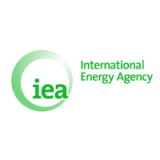
International Energy Agency (IEA)
About
The International Energy Agency (IEA), an autonomous agency, was established in November 1974. Its primary mandate was – and is – two-fold: to promote energy security amongst its member countries through collective response to physical disruptions in oil supply, and provide authoritative research and analysis on ways to ensure reliable, affordable and clean energy for its 28 member countries and beyond. The IEA carries out a comprehensive programme of energy co-operation among its member countries, each of which is obliged to hold oil stocks equivalent to 90 days of its net imports. The Agency’s aims include the following objectives:
- Secure member countries’ access to reliable and ample supplies of all forms of energy; in particular, through maintaining effective emergency response capabilities in case of oil supply disruptions.
- Promote sustainable energy policies that spur economic growth and environmental protection in a global context – particularly in terms of reducing greenhouse-gas emissions that contribute to climate change.
- Improve transparency of international markets through collection and analysis of energy data.
- Support global collaboration on energy technology to secure future energy supplies and mitigate their environmental impact, including through improved energy efficiency and development and deployment of low-carbon technologies.
- Find solutions to global energy challenges through engagement and dialogue with non-member countries, industry, international organizations and other stakeholders.
The four main areas of IEA focus are:
- Energy security: Promoting diversity, efficiency and flexibility within all energy sectors;
- Economic development: Ensuring the stable supply of energy to IEA member countries and promoting free markets to foster economic growth and eliminate energy poverty;
- Environmental awareness: Enhancing international knowledge of options for tackling climate change; and
- Engagement worldwide: Working closely with non-member countries, especially major producers and consumers, to find solutions to shared energy and environmental concerns.
Member countries
The IEA is made up of 29 member countries. Before becoming a member country of the IEA, a candidate country must demonstrate that it has:
- as a net oil importer, reserves of crude oil and/or product equivalent to 90 days of the prior year’s average net oil imports to which the government (even if it does not own those stocks directly) has immediate access should there be activation of the Co-ordinated Emergency Response Measures (CERM) – which provide a rapid and flexible system of response to actual or imminent oil supply disruptions
- a demand-restraint programme for reducing national oil consumption by up to 10%
- legislation and organisation necessary to operate, on a national basis, the CERM, and
- legislation and measures in place to ensure that all oil companies operating under its jurisdiction report information as is necessary.
Global Engagement
Since the 1980s, the IEA has continued to build good working relationships with countries beyond its membership, in particular major energy consuming, producing and transit countries including Brazil, China, India, Indonesia, Mexico and South Africa.
Co-operation with these and other partner countries covers a wide range of activities, among them:
- jointly holding topical workshops on specific topics such as emergency response policies, energy efficiency and energy market regulation
- co-operating on in-depth surveys of specific energy sectors in partner countries, or their preparedness for major disruptions to oil and gas supplies
- helping experts and organisations from 20 partner countries join the IEA network of Energy Technology Initiatives (Implementing Agreements) and the International Low-Carbon Technology Platform
- holding training and capacity-building activities to spread best practices in energy policy and energy statistics.
The IEA also co-operates with the other international organisations and forums that work in the field of energy. It plays an active role in discussions with producer countries and with the Organization of the Petroleum Exporting Countries (OPEC), particularly within the International Energy Forum (IEF). On statistics, the IEA is a founding partner of the Joint Organisations Data Initiative (JODI). In addition, the IEA works closely with the International Renewable Energy Agency (IRENA). The IEA also supports energy-related work of the Group of 20 and Group of Seven and the Clean Energy Ministerial (CEM).
This engagement with partner countries and other international organisations is an integral part of the Agency’s efforts to provide all stakeholders – from policy makers to business leaders – with a truly global view of the world’s energy system.



Experience
Company Offices
- France (headquarters)
- Paris
- 9, rue de la Fédération